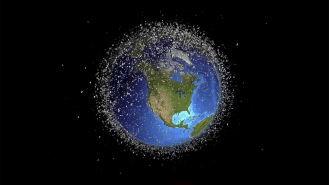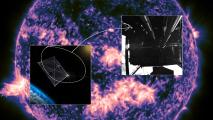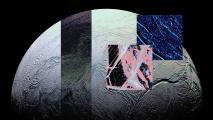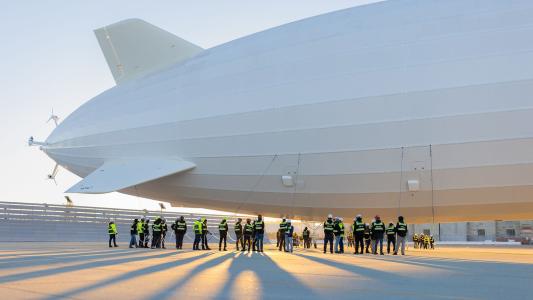One company you’ve never heard of is helping avoid space catastrophes
A California-based company you’re probably never heard of is helping everyone from SpaceX to the US government avoid collisions in Earth’s increasingly crowded orbit.
The challenge: Today, there are an estimated 9,000 operational satellites in low-Earth orbit (LEO) — the region of space about 100 to 1,000 miles above Earth’s surface — and by 2030, there could be more than 60,000, thanks to the falling cost of rocket launches and satellites.
In addition to these operational satellites, LEO also contains millions of pieces of space debris, hardware that we sent to space but never retrieved once we were done with it — this includes everything from defunct satellites to tiny rocket parts.
Because orbital debris in LEO moves 15,000 miles per hour, a collision with an operational spacecraft could be hugely destructive or even deadly if the craft is crewed. It could also lead to the creation of more debris, causing more collisions, potentially causing us to lose access to space altogether.

Meet LeoLabs: From space lasers to giant trash bags, scientists are exploring a slew of potential solutions to LEO’s space debris problem, but until we figure out what works at scale, we’re going to need a way to safely navigate the increasingly crowded space.
One of the groups leading that effort is California-based LeoLabs. The company is using advanced algorithms, cloud computing tech, and a global network of ground-based radars to track objects in LEO in real-time for satellite operators, space agencies, defense contractors, and others.
The company’s customers include SpaceX, the European Space Agency (ESA), and the US government, and its services include satellite fleet management, mission risk assessment, collision alerts, and more.
“The traffic in LEO is growing exponentially, driven by commercial innovation and economic opportunity,” Dan Ceperley, CEO and co-founder of LeoLabs, said in 2022. “Our space operations infrastructure is the only system designed to scale with that growth.”
The impact: LeoLabs has been growing steadily since establishing its first radar in Texas in 2017, and this year has been a particularly busy one for the company.
In January, it added a tenth radar station, this one in Australia, to its network, and in July, it helped ESA safely deorbit its Aeolus satellite — a historic mission given that the satellite wasn’t built for a controlled reentry.
This year, LeoLabs also established a partnership with ClearSpace, a company developing space debris-removal tech. The two companies now plan to work together to ensure LEO remains a safe place for humanity in the future.
“As the traffic in low Earth orbit grows, innovative, scalable solutions are needed, including active debris removal technologies and in-orbit servicing,” said Ceperley. “ClearSpace is an industry leader in both, and we’re proud to kick off partnering with them to build a safer, more sustainable future in space.”
We’d love to hear from you! If you have a comment about this article or if you have a tip for a future Freethink story, please email us at [email protected].




